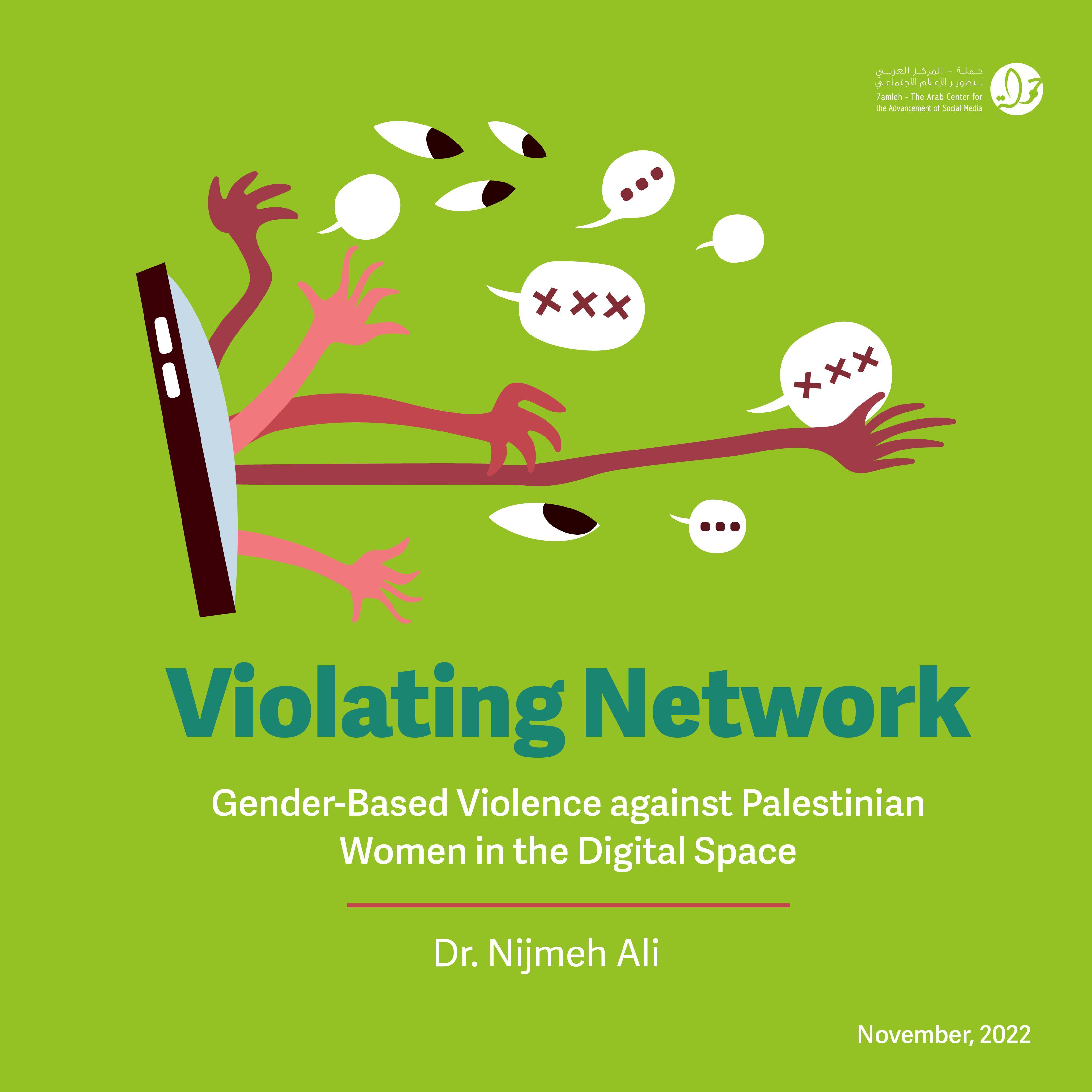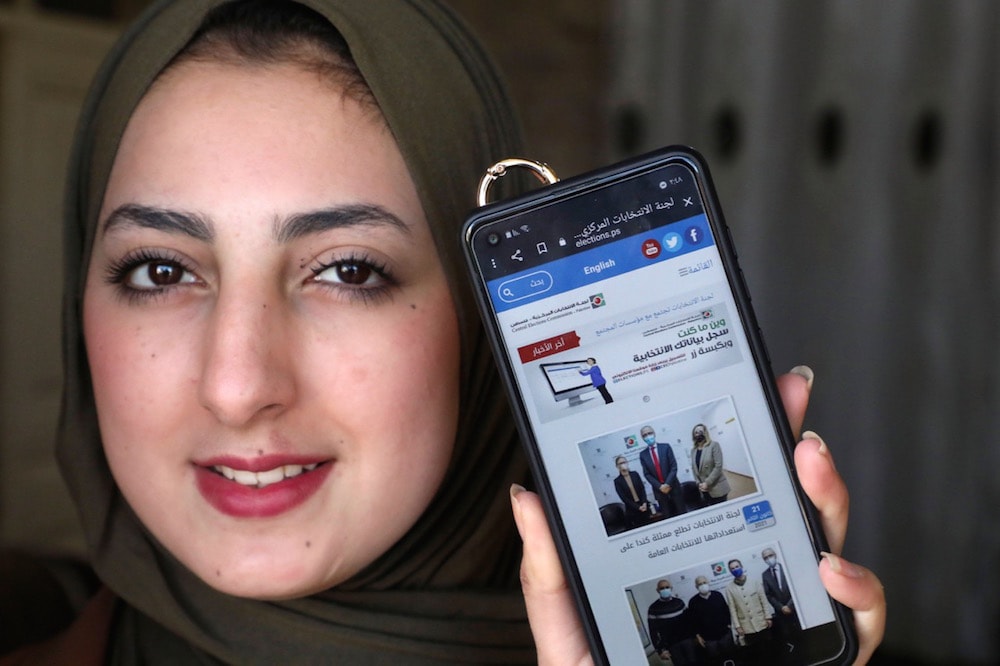Gender-based violence has seen a dramatic increase in the Palestinian digital space over the last several years, reveals a new report from 7amleh.
This statement was originally published on 7amleh.org on 28 November 2022.
The research highlights the need to ensure a safe, fair and free digital space for all by ensuring the preservation of the digital rights of individuals, which are considered an extension of human rights in reality (Palestinians in this context). It is also necessary to know the scope of the reflection of gender-based violence practiced in the digital space, and the extent of its impact on gender-based violence committed on the ground.

7amleh – The Arab Center for the Advancement of Social Media launched a new research report entitled “Violating Network. Gender-Based Violence against Palestinian Women in the Digital Space”, which aims to understand and analyze the phenomenon of digital violence against women, and to monitor gender-based violence in the digital space. The research also analyzes the phenomenon of cyber violence in the Palestinian context in terms of causes, impact and repercussions, in an attempt to explore concrete and practical recommendations to combat and limit it.
The research highlights the need to ensure a safe, fair and free digital space for all by ensuring the preservation of the digital rights of individuals, which are considered an extension of human rights in reality (Palestinians in this context). It is also necessary to know the scope of the reflection of gender-based violence practiced in the digital space, and the extent of its impact on gender-based violence committed on the ground.
The survey is based on measuring the phenomenon of violence against women and its reality through social media in Palestinian society, in the cities of the West Bank, East Jerusalem and among Palestinians in Israel and the Gaza Strip. This study was carried out through a survey that included 1,000 participants, in addition to implementing a focus group with the participation of more than 40 participants. Furthermore, in-depth interviews were conducted with labor and feminism, experts and activists in Palestinian society, to explore challenges and recommendations for combating digital gender violence.
The results of the survey indicate that 50% of the participants in the survey feel that they are being monitored through social media, and that 28% of the participants had previously experienced attempts to hack their accounts on social media platforms, while about 25% of the participants have been subjected to comments or harassment (mocking or contempt) for being women.
As for dealing with the issue, 33% of the participants who were harassed through social media only deleted the sender’s account and did not take any other action. In addition to that about 75% of the participants support parents monitoring their activities on social media platforms.
The research clearly highlights the “trap” in which Palestinian women live with everything related to digital gender-based violence. On the one hand, being in the digital space is a legitimate right and a public space that is supposed to be free, safe and equal for all; On the other hand, the mechanisms of control and oppression against women are reproduced from outside the digital space into it, where it is possible to read the results as describing the state of subjugation of women, restricting their appearance in the public space, and the lack of effort to protect women by companies, legal legislation, and law authorities represented by the police and societal oversight.
On the other hand, the research shows awareness among the participants of the importance of privacy and maintaining digital security. The results showed that the largest percentage of participants, 86.8%, check privacy settings on social media platforms.
Finally, the results of the research indicated that there is an urgent need to use several methods to reduce gender-based violence in the digital space, including intensifying civil society efforts to raise awareness, enhancing the role of parents by strengthening their educational and guiding role, as well as strengthening legislation and legal procedures, in addition to many recommendations and methods to combat or at least reduce digital gender-based violence.



